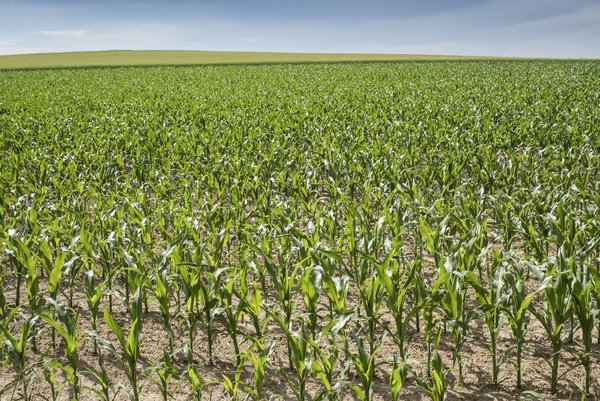 Read this article in French
Read this article in French- Share this article
- Subscribe to our newsletter
Is the Green Deal a bad deal for the planet?
With the Green Deal, the EU wants to be climate-neutral by 2030. Carbon emissions are to be reduced, while forestation, agriculture, environmentally friendly transport, recycling, and renewable energies are to be pushed. In a study published in Nature in October 2020, scientists of the Karlsruhe Institute of Technology (KIT) now show that this Green Deal might be a bad deal for the planet, as the EU may outsource environmental damage by high imports of agricultural products.
By 2030, about a quarter of all agricultural areas are to be farmed organically. Use of fertilizers and pesticides is to be reduced by 20 and 50 percent, respectively. In addition, the EU plans to plant 3 billion trees, to restore 25,000 km of rivers, and to reverse the decrease in populations of pollinators, such as bees or wasps.
The problem must not be outsourced
The scientists emphasise that in addition to pursuing these measures, it is important to specify foreign trade goals. Otherwise, the problem will only be outsourced and continue to damage our planet. The research team compared sustainability conditions in non-EU countries with those in the EU and recommended actions for a standardised procedure.
According to the study, the European Union annually imports millions of tons of agricultural products. In 2019, one fifth of crops were imported from outside the EU, as were many meat and dairy products. However, these imports come from countries whose environmental legislations are far less stringent than those in the EU.
The KIT scientists recommend to urgently harmonise sustainability standards, to strongly reduce the use of fertilizers and pesticides and avoid deforestation.
Fair evaluation of CO2 footprint worldwide
The researchers point out that the EU’s CO2 footprint has to be evaluated worldwide and then improved. Carbon balancing according to the Paris Agreement only covers emissions caused by domestic production, but not emissions due to the production of the same goods abroad.
Moreover, the scientists promote reducing consumption of meat and dairy products which would lower the need for imports. Domestic production in line with appropriate standards should be strengthened. To this end, areas with a low diversity of species or not used for agriculture so far could be converted. This could also lead to less deforestation in the tropics, which is mainly caused by the creation of new farming areas. Moreover, harvest yields could be increased by using CRISPR gene editing technology, the team says. This technology improves the edible mass, height, and pest resistance of plants without using genes of another species.
(KIT/ile)
Read more at KIT website





Add a comment
Be the First to Comment